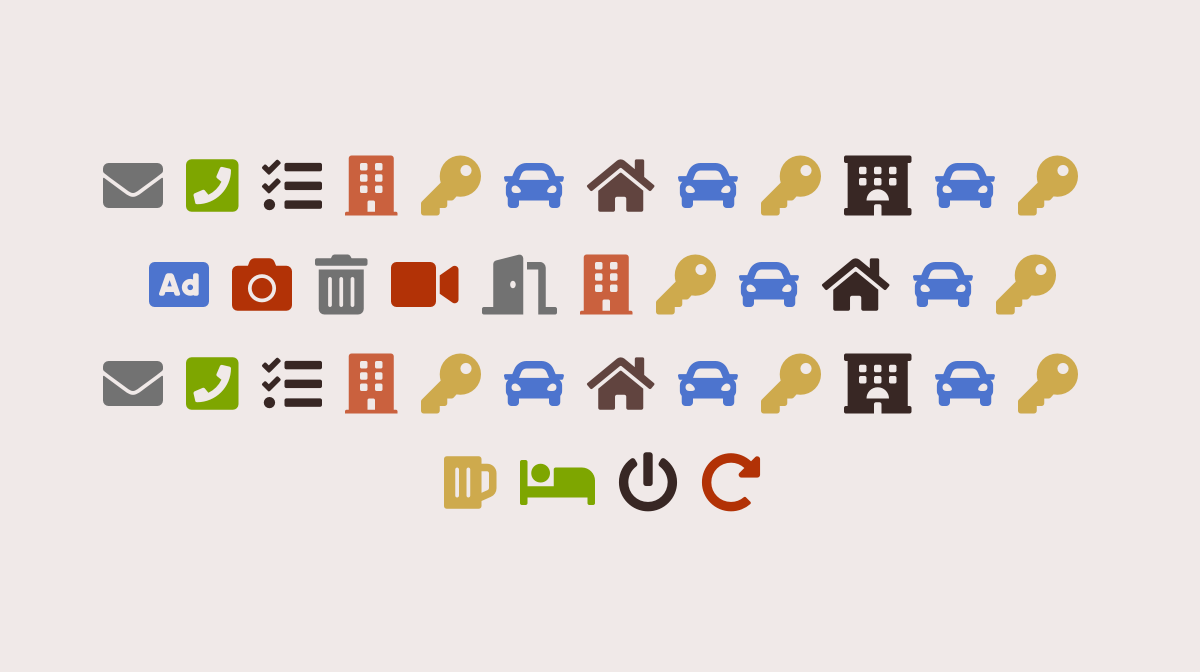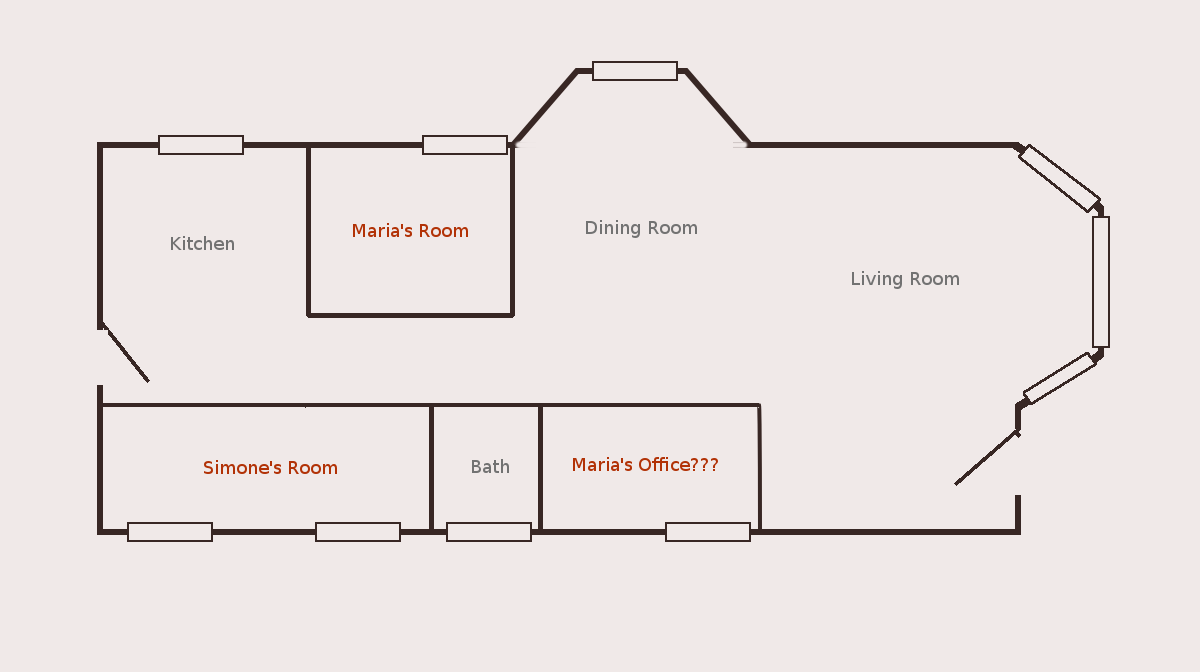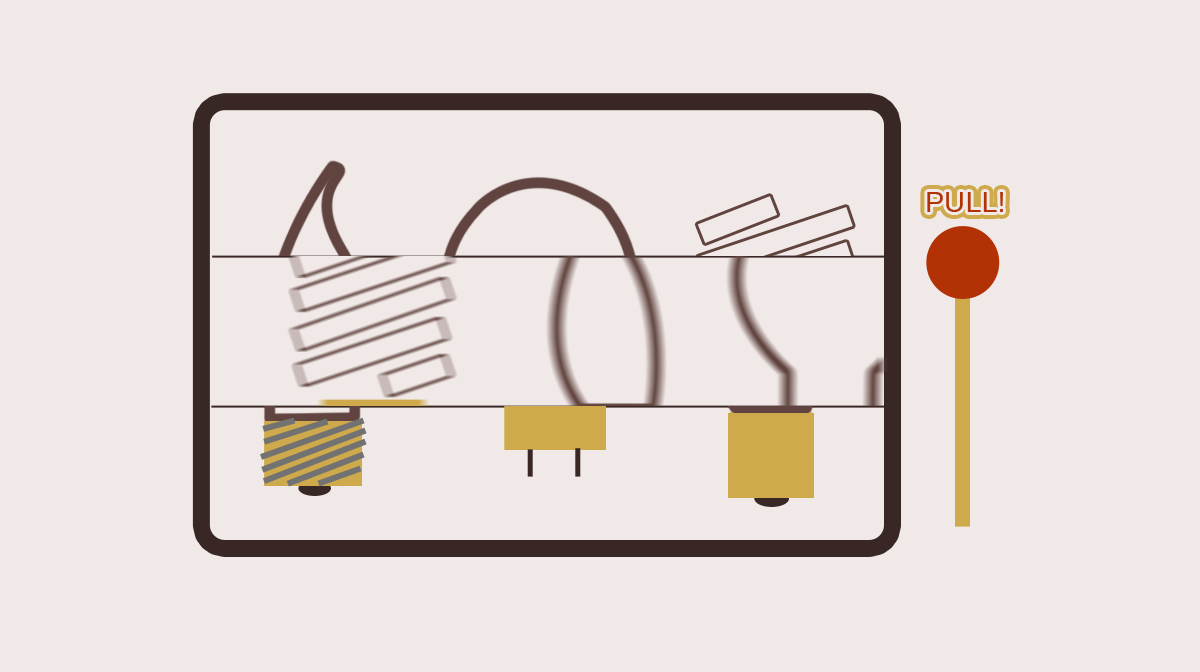Last week I described what I did during an average day when I worked as a leasing agent for a local landlord. That was the first half of my real estate agency career. Today we'll be doing the same thing but looking at the second half when I was working for a real estate brokerage as a Realtor focusing on rentals. Continue reading A Day in the Life of a Rental-Focused Chicago Realtor
Category: Small Business
Behind-the-scenes info on RentConfident’s life as a small business in Chicago.
The Spare Bedroom Conundrum
There are several things that fall within the realm of "things renters want that worry their landlords." Some of the more obvious ones are garbage disposals, dogs and barbeque grills, all for insurance and safety reasons. But one of the more surprising ones is the spare bedroom.
There are plenty of reasons why a renter would want an apartment with an extra bedroom. They may work from home and need an office. They might have partial custody of a child or be expecting a new baby. They may have a lot of friends or relatives out of town who stay with them occasionally. But when some landlords hear that you are seeking more bedrooms than you have occupants they will deny your application. Today we'll discuss why and provide some possible workarounds. Continue reading The Spare Bedroom Conundrum
Published by
Blog Idea Generation Part 4: Preserving Your Sanity
I've been writing on a weekly or biweekly basis pretty much consistently since around 1993. In college it was not unheard of for me to churn out over 200 pages of researched content in the span of a week. I created my first blog in early 1999. At that time the term "blog" itself was only two years old and far from a common term. I went from Geocities to LiveJournal to WordPress. There have been times when I've taken a few months or even a year off, but the "on" weeks definitely outnumber the "off" weeks.
At this point I have an almost mechanical system in place to ensure that I can quickly generate new and pertinent articles. It is currently 4am. This article is due at 8am. It'll be done with a couple of hours to spare. Once you get in the habit, the process of creating ideas and writing the articles becomes quite easy. But all the writing chops in the world will not prepare you for the necessary mindset to run a blog. Let's look at the challenges you will encounter as a blogger, and ways to counteract them so you too can stay with it for months, years or even decades.
"Blogging is Dead"
When blogging first broke onto the scene in the early 2000s, it was heralded as a way for the average Joe or Jane to have a voice in the world of journalism. Early bloggers gained fame as outsider detectives and commentators on modern society and politics and built celebrity status from their content. Others used blogging as a means of a personal outlet. It seemed for a few years that everyone had a blog.
Then people discovered that maybe it wasn't for them. It takes constant dedication, a bulletproof ego, and near immaculate grammar to continue blogging on a regular basis for a prolonged period of time. The marketing pundits of the modern era now sneer a bit at blogging as an "archaic" medium as they grapple with audiences that have no time for reading and writers with a literacy level hovers around 8th grade on average. However, blogging is far from dead.
Those who say blogging is dead put forth social media sites as the new hotness. They say that you should stick with tweeting or video instead of writing. This is to my mind akin to saying that everyone should rent or buy a condo instead of investing in a house. When you rent, someone else has control over everything you do with your living space. When you buy a condo, you buy air space in a building owned by a cooperative condominium association. If the building goes away due to catastrophe or outside interests, you are left with nothing. By contrast, if you own a house and that house is destroyed, you at least still own the land where it stood.
Social media platforms will rise and fall over time. Some will change algorithms, suddenly tanking your views. Others will change hands, suddenly placing your content under the ownership of outside interests that you might not trust with your content. Still others will go offline altogether, taking your content with them. The only way to ensure that your content remains visible, accessible, and entirely your own is to publish it yourself outside of any social media platform. Your blog is the "land" for your content to sit upon. Even if every social media platform vanishes tomorrow, you'll still have the blog itself.
Social media sites like Facebook and Twitter are not for creating content. They are an echo chamber. They are great for promoting and sharing content, and for improving your site's clout with the search engines, but the actual content to be shared must come from outside of these walled gardens. Nearly every business with a website wants search engine traffic. The best way to optimize your search engine visibility is to constantly generate new content that can be shared on more visible sites, using keywords that will make your site come up in as many searches as possible. If you have the writing chops to blog, it's not something to neglect, even if you're only talking to the computers that run the search engines.
There's a lot of people out there who tried and failed at blogging. Many of those folks are the same ones who are now saying that blogging is over as a medium. Always consider the source before trusting the advice.
Crickets and Tumbleweeds
New blogs (and even established ones) can suffer from low viewership and zero feedback. It can be quite disheartening to spend hours, days or even weeks creating an article, share it on social media, and get no response at all. You will never realize how little your friends care about your life until you post a new article and realize that none of them are liking, sharing or commenting on it. It can be very discouraging.
Blogging is in a way like practicing a monologue in front of a two-way mirror. You know other people have the potential to see what you're doing, but all you can do is keep talking to yourself and hope that someone gets something out of it. Remember the 1-9-90 rule of online content: 1% of people create content. 9% of people will interact with it. The other 90% will consume it in silence. You must write to that 90%, never lose sight of it, and be grateful to uncover new members of the 9%.
I encourage new bloggers to avoid checking their stats too often. For your first year, only look at them once a month or so. Focus on getting content out on a broad range of topics within your scope to see what gets the best responses. Remix liberally. If you happen to stumble across something that gets really good responses, analyze whether it's the format or the content that had the biggest effect. Treat it scientifically, and don't take it personally if your friends ignore you.
Remember that social media sites tend to smother the content of commercial blogs unless the creators pay to "boost" visibility. It's very possible that your friends simply aren't seeing your content. They are not obligated to serve as your marketing team. As a blogger you must form a new circle of "friends" consisting of the people who actually interact with your content. Every person who likes, comments or shares your articles must become your teammate.
Also remember that an article that flops on release may do very well through search engine traffic later on. The most popular article on the RentConfident Blog is the list of horror movies set in apartments that we published in October of 2015. It didn't do too well when we first ran it, but it has brought in more people through search engine traffic than all of our other posts combined. Perhaps we should revisit the video roundup format in the future.
Commenter PTSD
If you don't wind up suffering from zero attention, you may instead encounter the opposite: the wild west of the internet coming down on you in droves. Nearly every prominent content creator has had to wrangle with unruly hordes of commenters. Many creators end up acting like post-traumatic abuse victims, talking about how their actions will bring down the wrath of the masses in the comment section.
With the abusive commenters will come the spammers, using your site's hard-won visibility to promote their content. Once a blog becomes successful you will find that you spend as much if not more time dealing with your audience as you do in writing.
The blog author must learn to take this in stride. Some will hire moderators to handle their comments so they don't get brought down by the worst of the trolls. Others make a game of it, keeping personal Bingo cards of snarky comments and logical fallacies. Remember that the presence of spammers means your SEO practices are working. The presence of angry commenters means that someone in your audience got personally invested in your work.
Also helpful is to decide up front how to handle corrections to your work after publication. Some comments will point out obvious flaws in your work, such as typos and grammar. Others will take you to task for getting things objectively wrong. Still others will provide more subjective arguments - contrary opinions and general disagreements from different lifestyles and paradigms. Which ones will make you actually go in and correct the article? Which ones will earn a reply from you in the comments? Have a plan in mind for how to deal with these different types of critiques.
Transgressive Activities.
Beyond the perils of success and failure is the iconoclast mindset that every successful blogger must embrace to survive. The act of creating new content is inherently a transgressive act. It goes against everything society tells us about fitting in.
You're using a delivery vehicle that is at the same time too technologically advanced for some and archaic to others. In an era where every single idea in the world has already been written about in many different forms, the blogger says, "my version of this idea is sufficiently new and interesting to merit your attention." You are including yourself in the 1% of internet users who chooses to create content rather than merely liking it or consuming it in silence. You have to be willing to be seen as selfish. Be stubborn. Be bold. If the only thing you want out of life is to fit in with the crowd and be popular, blogging is not for you.
The author must also be willing to let go of their content. It's easy to become possessive of what you've written, feeling defensive when others disagree with it and hurt when others show apathy towards it. But once you've written and published something, it is no longer yours. It becomes part of the library of universal lending, owned by every person who reads it, whether you like it or not. You must learn to differentiate between attacks on your work and attacks on you as a person. Allow the former, delete the latter. It helps to have a large body of work that is continually growing, and thus diluting the importance of any specific article in your own mind. Quality is important, but quantity preserves your momentum.
At this point if someone sends in a comment on an article that's over a couple of months old, I have to go back and reread it myself to remember what they're talking about. I am very, very glad that I've gotten to this point.
We're coming to the end of our month-long tutorial on long form blogging. I hope you've enjoyed this little departure from our normal talk about real estate, rentals and Chicago. I hope you've also found it useful for your own blogs, or at least an insight behind the scenes of how this blog operates. It's been a welcome break for me. Over the course of this series I've come up with about 15 ideas for new articles that fit within our own normal scope. I'll start working through that list next week. See you then!
PS: Time is 5am.
RentConfident is a Chicago startup that provides renters with the in-depth information they need to choose safe apartments. Help us reach more renters! Like, Share and Retweet us!
Published by
Blog Idea Generation Part 3: Remixing
Did everyone have a good Thanksgiving? We did and we enjoyed a little time off. Now we're back to finish what we started, with the next installment of our series on Blog Idea Generation. Today we'll be talking about how to make the most of the ideas you come up with in your brainstorming sessions with the concept of remixing. Continue reading Blog Idea Generation Part 3: Remixing
Published by
Blog Idea Generation Part 2: Synthesis
Synthesis is defined as the combination of ideas or concepts to form new ones. Analysis is breaking down ideas into their distinct components. When it comes to creating content for your blog, synthesis is your best friend. Blogging is about connecting with your readers in a way that will make them hit the "share" button. Synthesis is the process you use to show how your ideas, products or services are useful for individual customers. After all, every organic "share" on a social media site means a little less money you have to spend promoting yourself on your own. By combining your blog's concept with a selection of topics that appeal to the many diverse interests of your readers, you not only wind up with a near-infinite source of ideas, but you guarantee that your content remains relevant over time.
Today we'll be reviewing how to use synthesis to create article ideas for your own blog. Continue reading Blog Idea Generation Part 2: Synthesis






